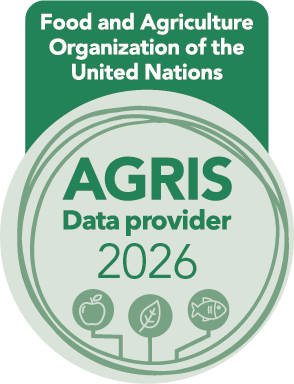Breeding climate change resilient maize and wheat for food security
Keywords:
Climate change, Maize, Wheat, Food securityAbstract
Climate change is affecting agriculture directly or indirectly, worldwide and is an important challenge that threatens the long-term production growth of cereals. Fluctuating temperature, green-house gases, rainfall, and high humidity directly affect the crops, pathogens, insects, and weeds. Several new diseases, weeds, and insect pests have started appearing with the changing climate. Maize and wheat are the two of the most important food crops worldwide with too are getting affected. Predictions suggest that climate change will reduce maize and wheat production this will coincide with a substantial increase in demand for maize and wheat due to rising populations. Maize and wheat research has a crucial role to play in enhancing adaptation to and mitigation of climate change while also enhancing food security. The varieties of agricultural crops with increased tolerance to heat and drought stress and resistance to pests and diseases are serious for handling existing climatic variability and for adaptation to progressive climate change. Numerous climate resilient agricultural technologies such as zero tillage (no tillage), laser land leveling, happy seeder, raised-bed planting, tensiometer, and rotavator have been invented for the conservation of agricul-ture. Further, drip irrigation and fertigation, leaf color chart (LCC) for need-based application of nitrogen, integrated nutrient management (INM) systems, integrated pest management (IPM) systems, integrated disease management (IDM) systems, site-specific management systems using remote sensing, GPS, and GIS, and Web-based decision support systems for controlling diseases and insect pests are being commercialized to mitigate the climate change.
Downloads
Downloads
Published
How to Cite
Issue
Section
License
Copyright (c) 2020 Agriculture and Environmental Science Academy

This work is licensed under a Creative Commons Attribution-NonCommercial 4.0 International License.




